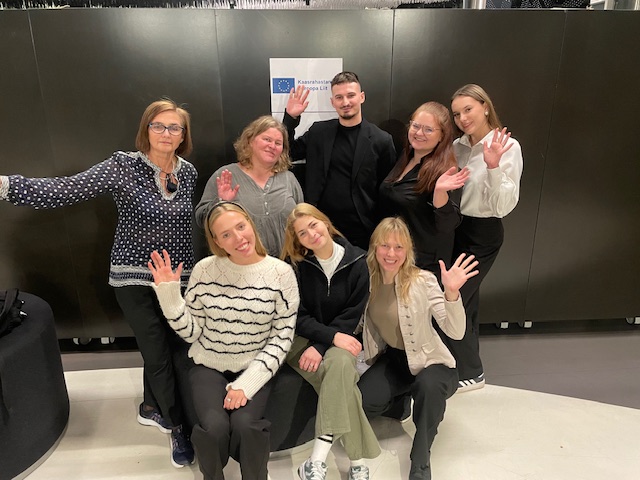At the closing event of the Baltic4UA project on November 28, 2024, at the Vabamu Museum of Occupations and Freedom, it was concluded that crisis plans developed through the collaboration of companies, civic organizations, public sector institutions, and academic institutions play a crucial role at the local level in providing smooth and rapid support to citizens during crises.
Baltic4UA is the abbreviation for the Erasmus+ supported collaborative project “Baltic Universities Engaging Citizens for Ukraine,” implemented from February 2023 to January 2025 by six partners: Tallinn University as the lead partner, the University of Latvia, Kaunas University of Technology, Lviv Polytechnic National University, the University of Tartu, and Web2Learn. The project’s goal is to strengthen the social responsibility of Baltic universities through civic initiatives to address the humanitarian crisis in Ukraine within the Baltic region.
At the closing event, the history of Vabamu was presented, highlighting its founder Olga Kistler-Ritso’s Ukrainian roots, alongside the exhibition “Defending Freedom: Estonian Civil Society in the Russo-Ukrainian War.” Toomas Roolaid shared his experiences as a volunteer in Ukraine, emphasizing the critical role of individuals in defending the peace of civilians. Project manager Lianne Teder and Tallinn University associate professor Larissa Jõgi introduced the project outcomes.
In the second part of the event, a World Café session was held, during which four discussion groups explored actions and recommendations for future societal crisis management across various sectors.
- Businesses table: Led by Lianne Teder, experienced in social entrepreneurship, the discussion highlighted how companies have partnered with the state to provide swift solutions for supporting Ukrainian war refugees and initiated direct aid efforts for Ukraine.
- Public sector table: Moderated by Monika Ristikivi, a student at the Estonian Academy of Security Sciences, the discussion emphasized the state’s role in helping refugees adapt to life in Estonia, disseminating relevant information, and coordinating cooperation between agencies.
- Civic organizations table: Facilitated by youth worker Kerttu Karing, the discussion stressed the ability of civic organizations to mobilize volunteers, coordinate cooperation, and provide psychological support to those affected by crises.
- Academic institutions table: Led by Yurii Kondratyk, digital skills project manager at the University of Tartu’s Johan Skytte Institute of Political Studies, the discussion underscored universities’ role in conducting research, sharing findings for practical application, and supporting Ukrainian researchers and students in their academic endeavors.
Collaboratively developed crisis plans will help prepare for future crises at both local and national levels, outlining the broader roles of organizations from all four sectors and specifying concrete expectations for each organization at the local level, enabling them to prepare accordingly.

The event was organized by Tallinn University students as part of the Interdisciplinary Learning (ELU) course. Overviews of project results and related articles are available on the project’s website. The project manager at Tallinn University is Lianne Teder, reachable at lianne.teder@tlu.ee or +372 5291034.